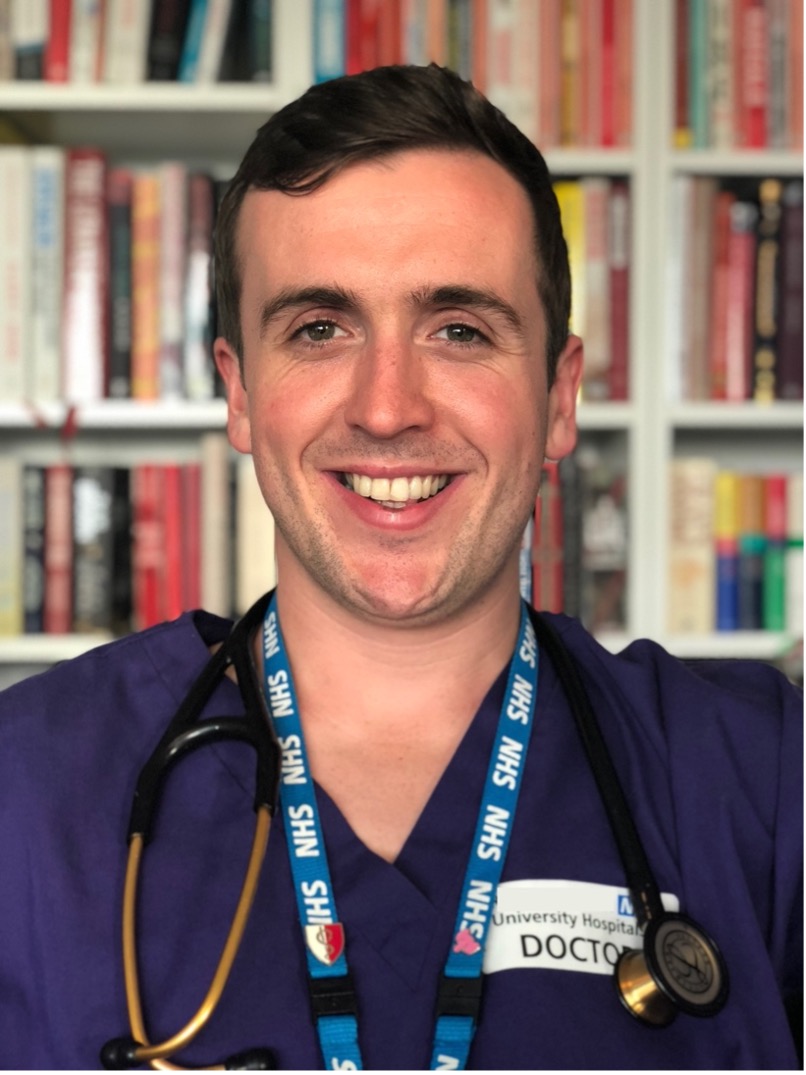The potential positive impact of junior doctor leadership is becoming increasingly recognised across the system, with both the GMC, and Royal Colleges, frequently expanding their expectations of junior doctors in the leadership domain. The question that stems from this is how do we then support and educate our junior doctors to achieve these competencies?
Following 70/20/10 model, it is widely accepted that the focus of leadership development should be on experiential, on-the-job learning. However, what is often overlooked is how crucial the 10% “coursework and training” is to give our doctors a steer on exactly what it is they should be learning on-the-job. This training covers the different concepts and models that underpin leadership, and may also include some essential skills such as quality improvement, active listening, and problem solving.
Why is this difficult at the moment?
Our scoping to date suggests this training has traditionally been delivered in two key ways: stand-alone teaching sessions, such as a weekend course, or a long course, such as a Postgraduate certificate, a Master’s degree, or a qualification from other specialist organisations.
- Inflexible, meaning your rota may not allow you attend (ignoring the stress of the study leave process!) and do not necessarily coincide with when that learning would be most useful for the doctor. For example, they may not feel ready to undertake a course on service improvement at this moment, but they may never be offered the opportunity again.
- Time-limited, so the trainee cannot return to it or is not able to “pause” it, to allow time to put this learning into practice, and subsequently continue the learning.
- Costly, to both the trainee and to their training organisation.
- Generic, as the content cannot be tailored to the individual.
- Lacking in meaning and real-world application, as it is often seen as a box ticking exercise, rather than something that can be translated into tangible improvements for patients.
Ultimately, these methods of learning may be intimidating and inaccessible to trainees due to the associated large upfront costs and significant time commitment.
What the future should look like
Taking into account all of the issues outlined above, we asked ourselves, “what should the future of junior doctor leadership development look like?” We believe that in an ideal world, any leadership development resource should aim to meet the following five criteria:
- Not only should it be available free-of-charge to the junior doctor, but it should also be accessible as and when the junior doctor needs it most. A junior with an opportunity to chair a meeting next week, for example, needs to access support materials quickly, without cost. It should also be accessible wherever they are at that point in time, whether at home, on the wards, or between clinics, for example.
- As junior doctors are often time-poor, content should be delivered in bite-sized chunks that can be easily accessed and would not require them to commit many consecutive hours to this. They should also have opportunities to return to the resource, to either recap their learning, or complete extension activities.
- Many courses use wonderful examples of leadership skills and tools from other industries. Our feedback suggests that teaching how to conduct a lean analysis on a patient’s journey though A&E, for example, resonates much more strongly than how it can be used in a car manufacturing plant. This would also enable the junior doctor to see the importance of the wider MDT in leading change within the NHS.
- Technology-enabled. Though lectures have traditionally been our mainstay of learning, advances in both technology, and our understanding of adult learning, now provide an opportunity for us to deliver education more effectively. Our feedback suggests that an innovative approach that caters to all styles of learner, using text, video, interactive exercises, social interaction, and even simulation, will more effectively facilitate leadership development amongst our cohort.
As discussed, we agree that the majority (70%) of development should be through “on-the-job” learning. Any development resource should therefore have a strong focus on providing not only the resources, but also the encouragement, that is required to put these skills into practice. Ideally, educational content should inspire our juniors to use their learning, and then give them the opportunity to safely reflect on their experiences.
We understand now, more than ever, the role that effective clinical leadership plays in improving patient outcomes. Through paying consideration to the criteria above when creating leadership development resources, we believe that education providers will not only ensure that their materials are closely tailored to the needs of our junior doctors, but also that they are most effectively equipping them with the skills required to tackle the leadership challenges that they will face.

Dr Anna Street
Dr Anna Street is a specialty registrar in Geriatric Medicine in the East of England deanery and is currently a regional trainee representative. She has previously worked as a Leadership Fellow at Health Education East of England, where she created educational resources about leadership for junior doctors. She has previously been the regional representative for Core Medical Training within the East of England and the Chair of the Association for Palliative Medicine Juniors. She has recently completed a postgraduate certificate in Medical Education at the University of Cambridge. She is passionate about helping junior doctors to develop their leadership skills.
Declaration of interests
I have read and understood the BMJ Group policy on declaration of interests and declare the following interests: I have been paid to create educational resources for the Personalised Care Institute. I have previously worked for Health Education East of England as a Leadership Fellow.

Dr Liam Loftus
Dr Liam Loftus is a GP Trainee based in Cambridge. He completed the National Medical Director’s Clinical Fellow Scheme in August 2022, after spending a year working with the Primary Care Team at NHS England and NHS Improvement. As a future GP, Liam’s desire is to take a step back from his consulting room and consider how we can improve the health and wellbeing of all patients; locally, regionally, and nationally. His specific interests are the future of general practice, and the role that primary care plays in tackling health inequalities. He is now using his building upon his national policy experience, and applying this directly to the practices and communities in his local area. Outside of his roles, he is co-leading The Big GP Consultation; a platform for early career GPs to discuss, design, and shape the future of general practice. Twitter: @Liam_Loftus
Declaration of interests
I have read and understood the BMJ Group policy on declaration of interests and declare the following interests: none.

Dr Raees Lunat
Raees currently works as Senior Advisor to the Chief People Officer of the NHS alongside completing GP training. His current role involves providing strategy, policy and clinical input into work relating the NHS Workforce, this includes areas such as workforce planning, staff experience and leadership. Before taking up his role as Senior Advisor, Raees completed the National Medical Director’s Clinical Fellowship Scheme where he was based at HEE and led on the publication of a national report, set up HEE’s inaugural Trainee Forum under the sponsorship of Prof Chris Whitty and contributed extensively to education policy and strategy. Raees is passionate about using his clinical work and leadership experience to bring meaningful change to our patients and wider NHS. Twitter: @raeeslunat
Declaration of interests
I have read and understood the BMJ Group policy on declaration of interests and declare the following interests: none.